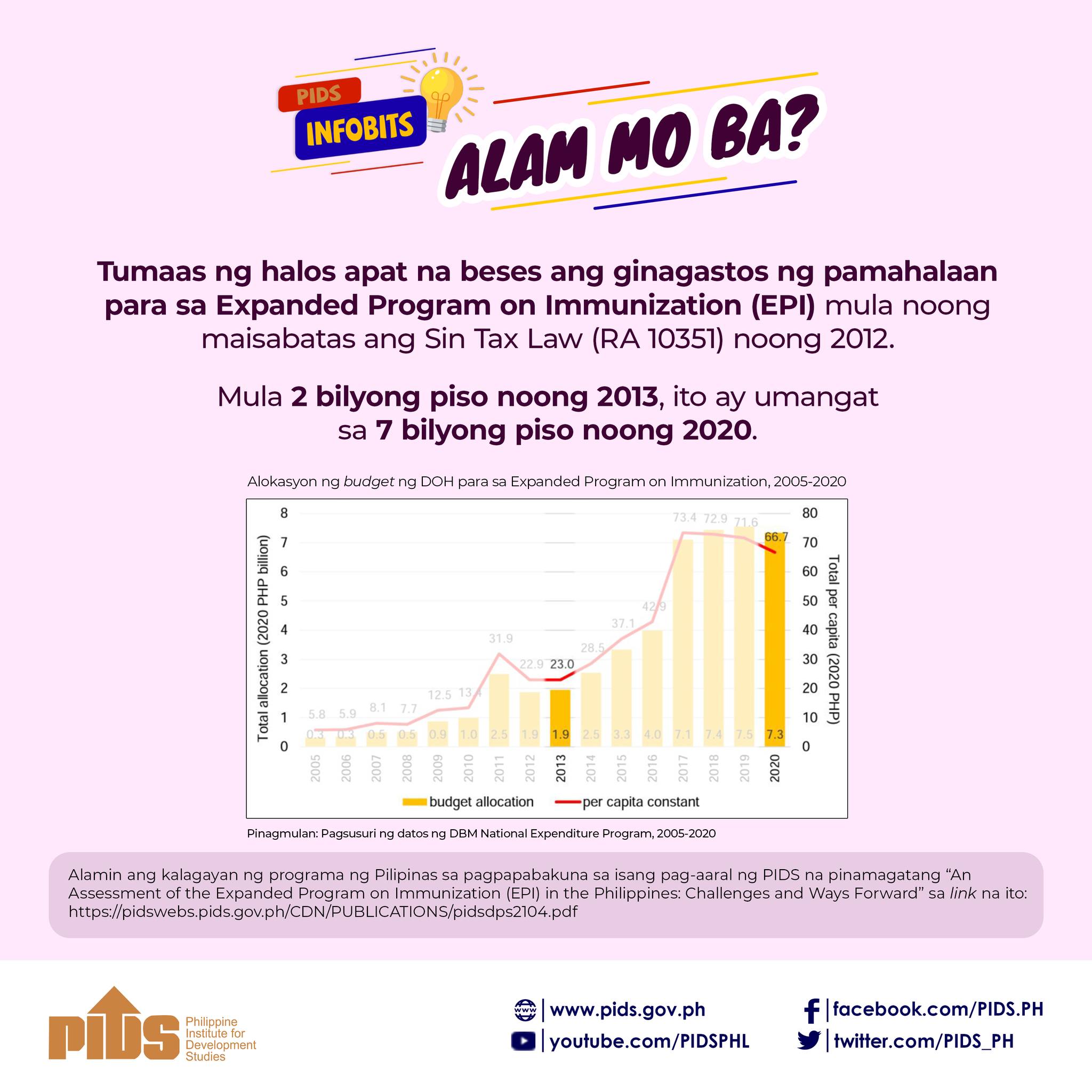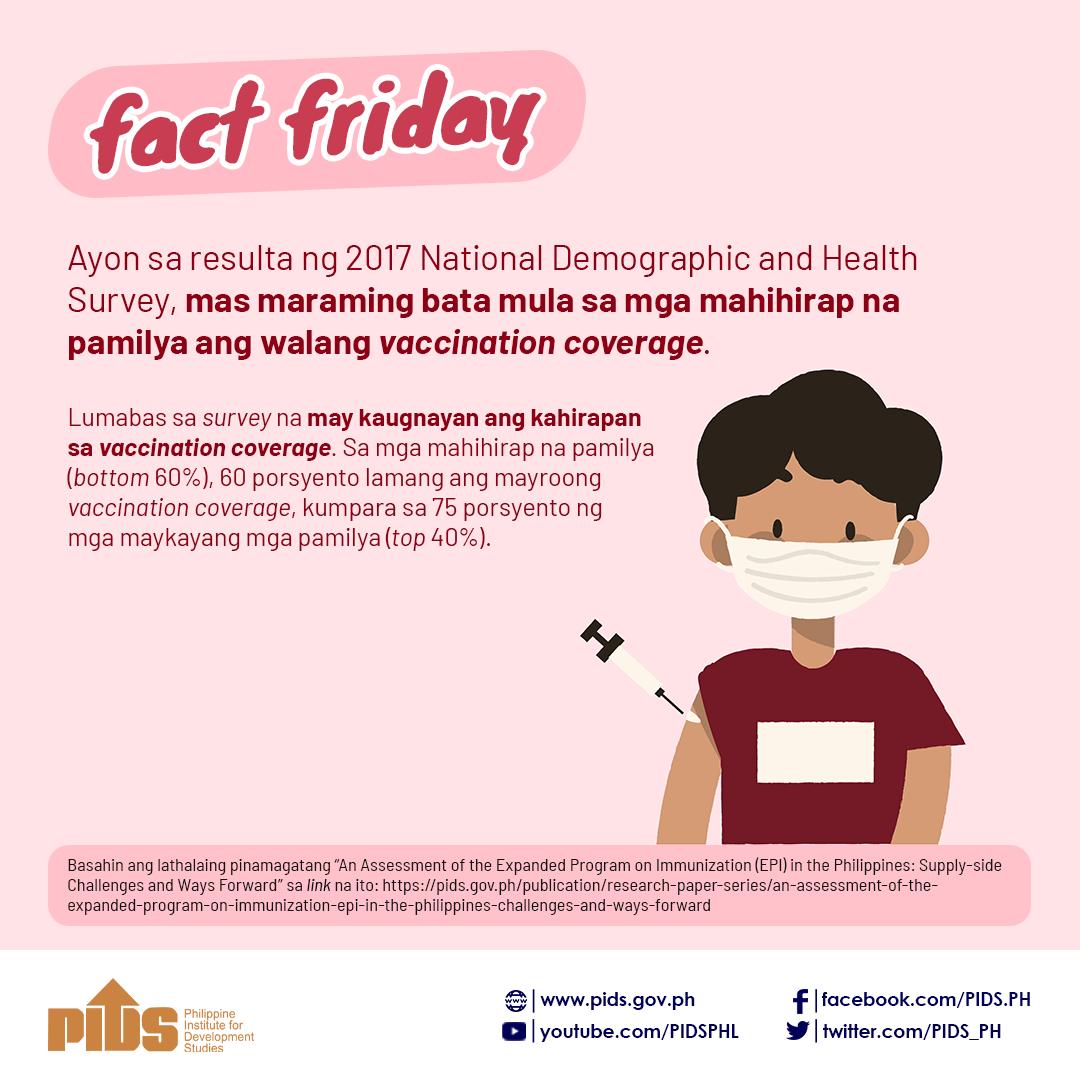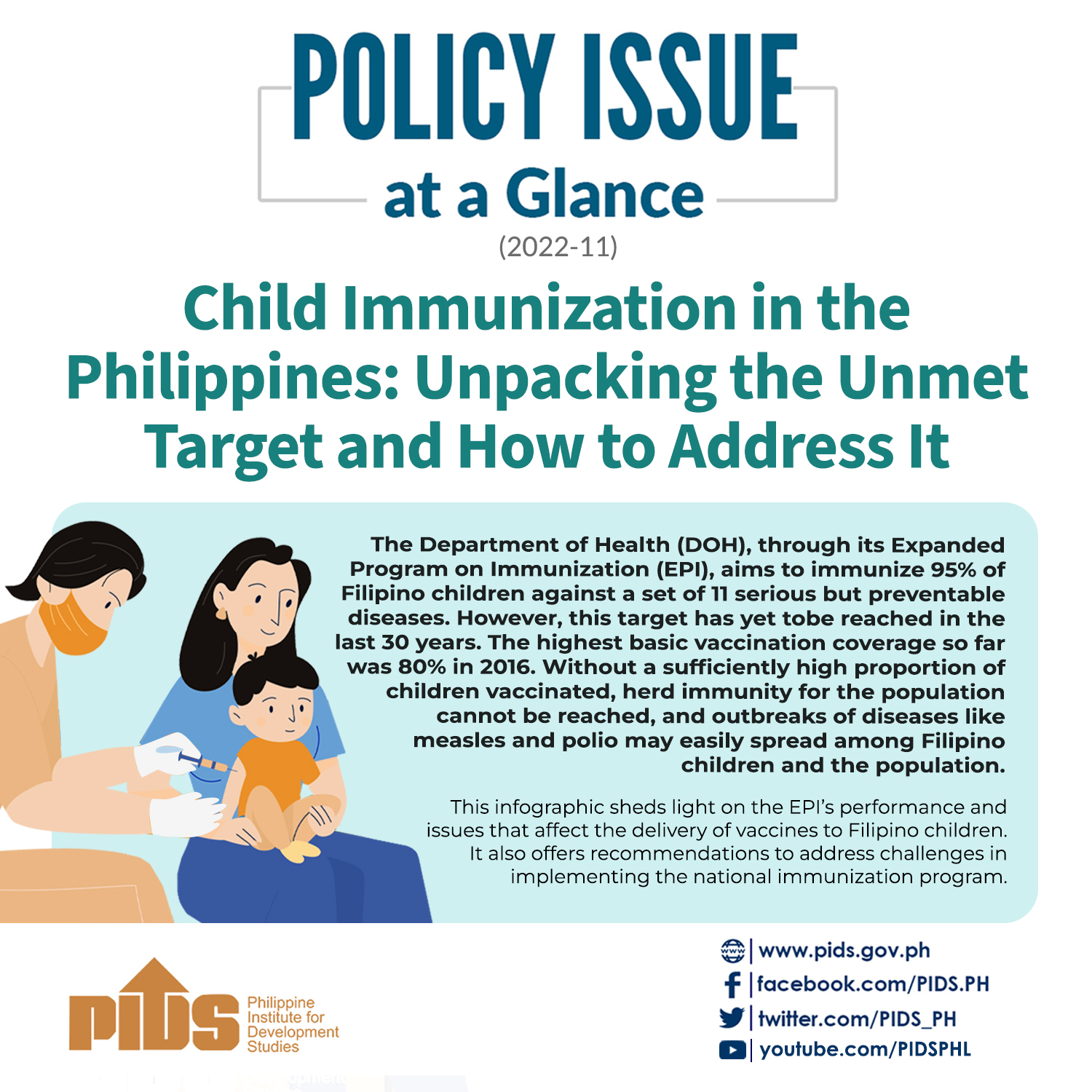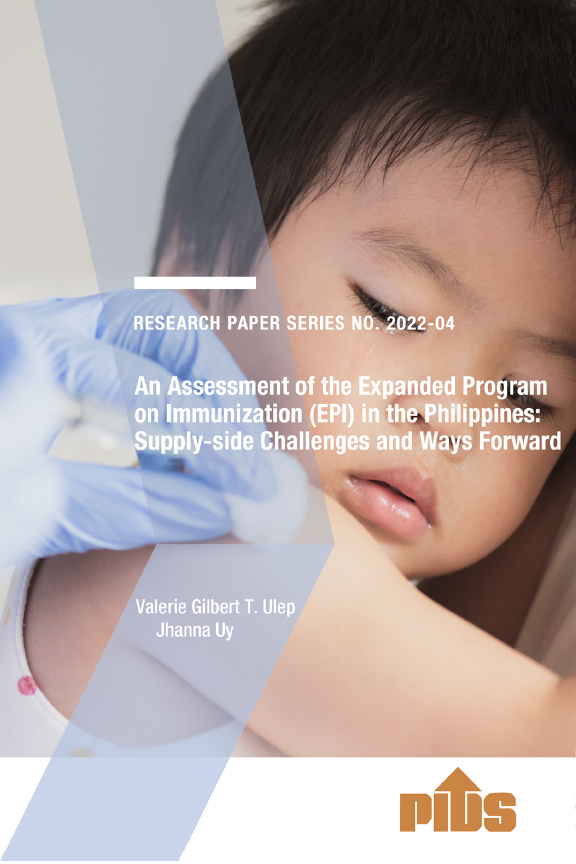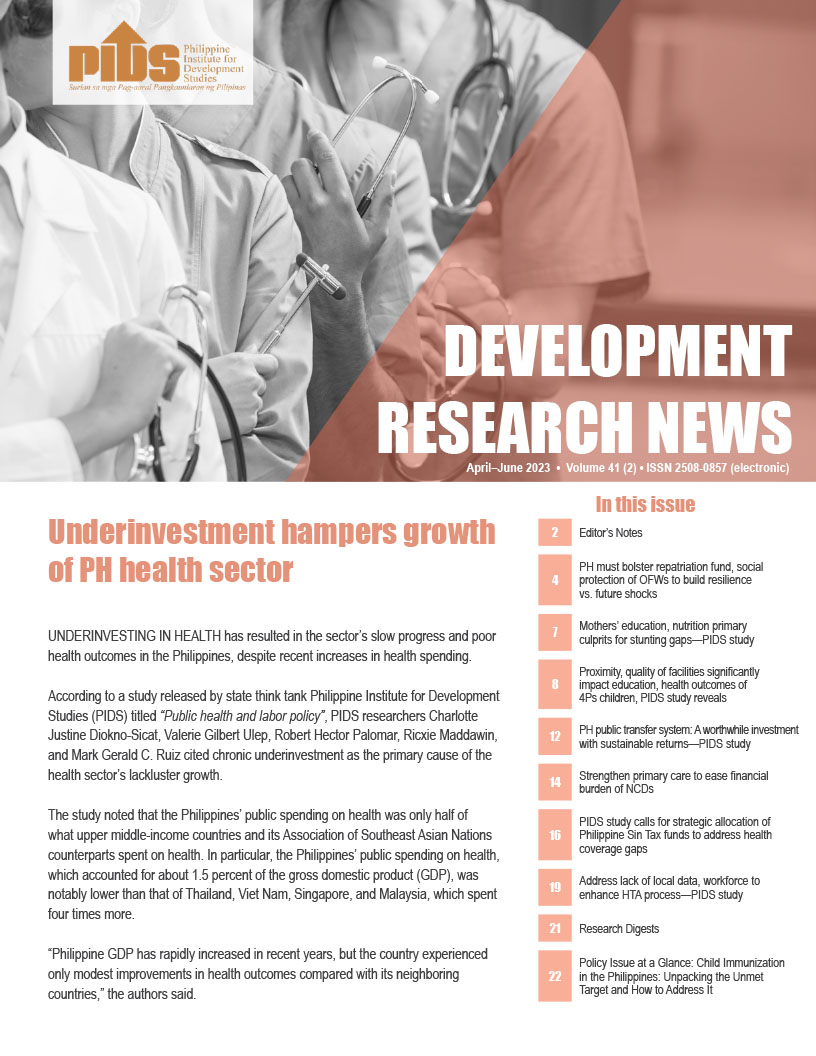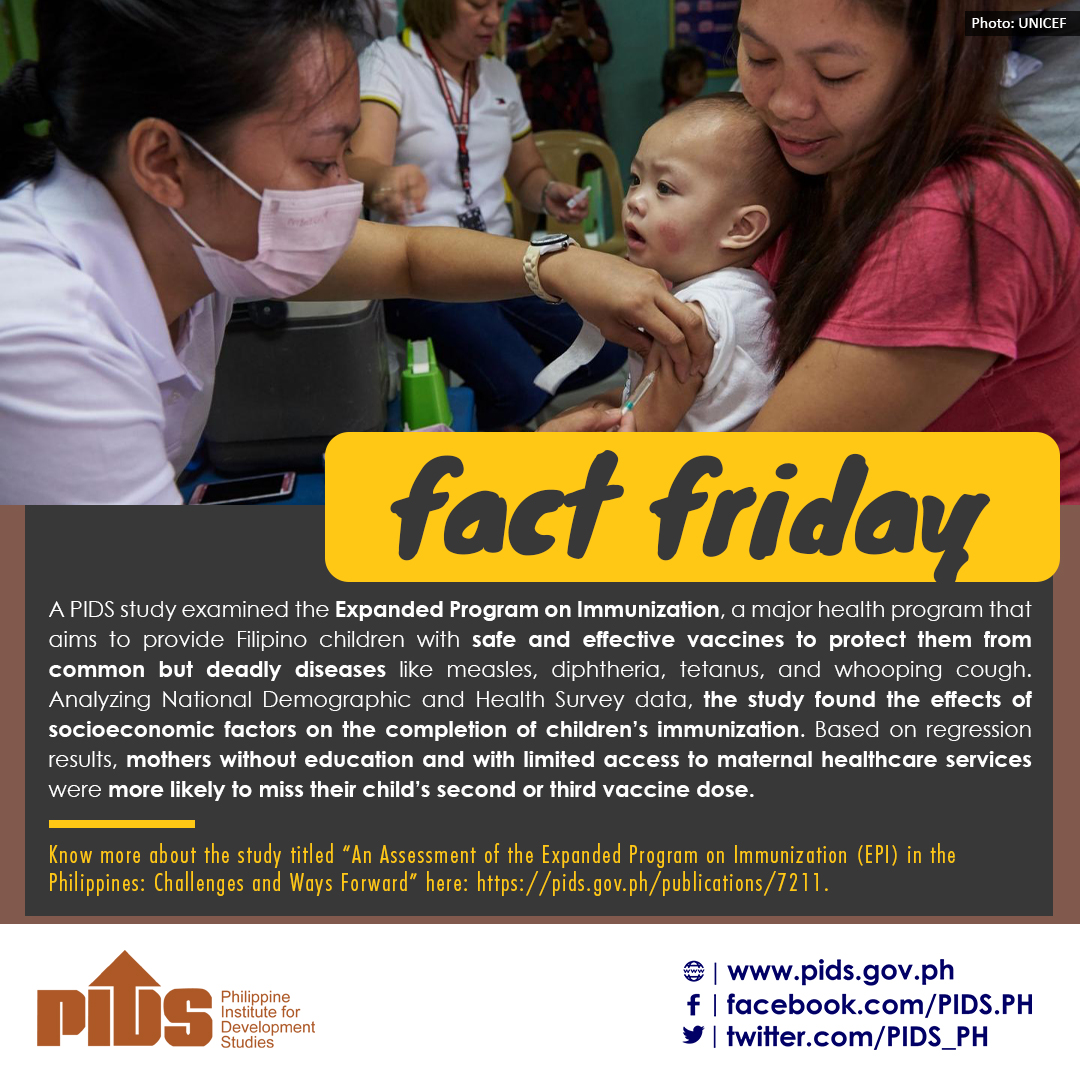
Hello, PIDS friends! Here's our #PIDSFactFriday for the week on the socioeconomic factors affecting children's immunization.
A PIDS study examined the Expanded Program on Immunization, a major health program that aims to provide Filipino children with safe and effective vaccines to protect them from common but deadly diseases like measles, diphtheria, tetanus, and whooping cough. Analyzing National Demographic and Health Survey data, the study found the effects of socioeconomic factors on the completion of children’s immunization. Based on regression results, mothers without education and with limited access to maternal healthcare services were more likely to miss their child’s second or third vaccine dose.
Know more about the study titled “An Assessment of the Expanded Program on Immunization (EPI) in the Philippines: Challenges and Ways Forward” here: https://www.pids.gov.ph/publications/7211.
A PIDS study examined the Expanded Program on Immunization, a major health program that aims to provide Filipino children with safe and effective vaccines to protect them from common but deadly diseases like measles, diphtheria, tetanus, and whooping cough. Analyzing National Demographic and Health Survey data, the study found the effects of socioeconomic factors on the completion of children’s immunization. Based on regression results, mothers without education and with limited access to maternal healthcare services were more likely to miss their child’s second or third vaccine dose.
Know more about the study titled “An Assessment of the Expanded Program on Immunization (EPI) in the Philippines: Challenges and Ways Forward” here: https://www.pids.gov.ph/publications/7211.
Gallery Images:



